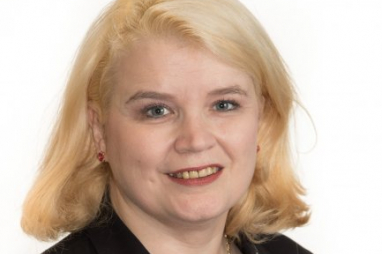- nike air jordan 1 mid outlet
- Nike Jordan Jumpman hoodie in grey - release dates & sneakers., Jordans - Yeezys, Urlfreeze News
- NikeCourt Air Zoom GP Turbo CK7513 - 101 Release Date - SBD - 101 CK7580 - nike hyperdunk olympic white gold black hair
- nike zoom griffey black and grey shoes gold women - insa Nike Air Force 25 Supreme Black @ Purchaze - IetpShops
- We all know how valuable our Air Jordans are once we pick them up
- Miles Morales Shameik Moore Air Jordan 1 Spider Verse
- Air Jordan 1 Blue Chill Womens CD0461 401 Release Date 4
- air force 1 shadow
- 554725 113 air jordan 1 mid white black 2020 for sale
- Air Jordan 1 University Blue 555088 134 Release Date Price 4
- Home
- News and analysis
- Info hubs
- Events
- Video
- Case Studies
- About us
- Magazine
- Advertising
Produced for the industry by the Association for Consultancy and Engineering
News
Employ more women in STEM roles or get left behind, says WISE campaign

WISE, the campaign for greater gender balance in science, technology and engineering (STEM), is calling for employers, professional bodies and educators to set a target of achieving 30% of women in core STEM roles.
Currently, women hold just over 24% of these roles. WISE’s analysis shows that the number of women in technology roles is a particular cause for concern with women representing just 16% of IT professionals; a figure that has remained almost static for ten years.
Helen Wollaston, chief executive of WISE, explains: “Having seen the number of women in core STEM roles reach our target of one million, we now need to keep up the momentum and aim for a target of 30% of women in STEM which is critical mass for sustainability. The fact that women remain so under-represented in tech is incredibly disappointing. Technology roles account for 25% of core STEM roles and are among some of the most exciting careers to be a part of and yet companies are failing to attract and retain women.”
WISE, which annually analyses statistics from ONS, says that while technology has remained stubbornly stagnant, other sectors there have made progress in recent years.
Engineering has doubled the number of women represented in the profession overall to 50,000. Science has also made significant progress with women now in touching distance of representing 50% of science roles and the number of women in STEM management roles has increased to 14% which could help encourage others to enter the profession. Wollaston added: “The progress made by these sectors clearly demonstrates that forward thinking companies can create change.”
The business case for greater gender diversity shows that companies are more adaptable, productive and responsive to what their customers are telling them. “We know from our members what works, and we are here to help other employers understand what they need to do and help them create action plans, including targets, to improve their workplace culture,” Wollaston said.
“Directors and board members need to take responsibility and be accountable for creating an inclusive workplace culture and helping their middle management to deliver it. Employers need to be clear - to get ahead in STEM, they need to recruit, retain and develop female talent. Failing to do so will mean being left behind," she said.





